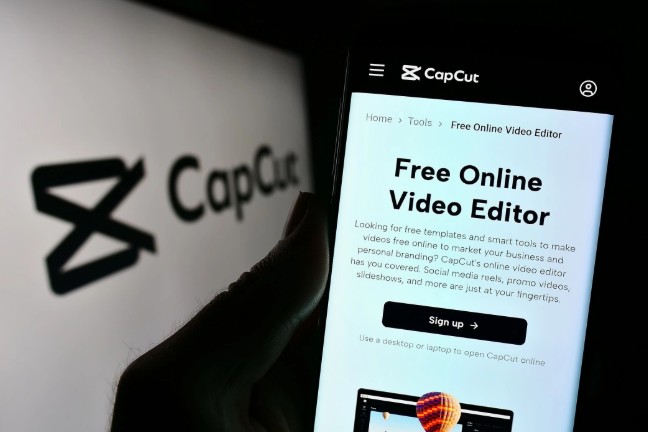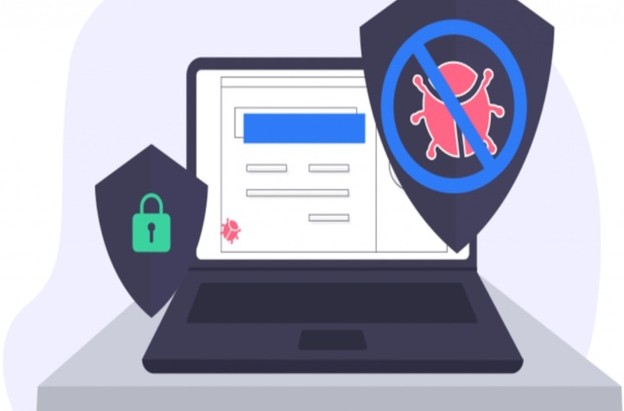Best Selling Products
Innovation or Exploitation? The Truth Behind CapCut's New Terms of Service
Nội dung
According to Techloy, the update to CapCut's 2025 Terms of Service has caused a backlash among users. The new terms give CapCut broad and unlimited rights to all content that users upload to the platform, including videos, images, audio, and even drafts or resources that have not been shared publicly.

In the era of explosive content creation, video editing tools like CapCut have become indispensable "helpers" for millions of users, from ordinary users to professional creators. However, recently, a worrying move from CapCut - an application owned by ByteDance (TikTok's parent company) has caused a "storm" in the user community.
According to the latest Terms of Service update, CapCut allows the use of user content for advertising, sharing, and commercial exploitation without consent or payment. This means that your videos, images, background music, and even your voice can be used without your knowledge. Is this the “silent” price that users have to pay for a free application? In this article, let's analyze with SaDesign the potential privacy and intellectual property risks that CapCut users are facing after this controversial terms update.
1. Controversy over new terms of service
According to Techloy, the update to CapCut's 2025 Terms of Service has caused a backlash among users. The new terms give CapCut broad and unlimited rights to all content that users upload to the platform, including videos, images, audio, and even drafts or resources that have not been shared publicly.
.png)
More worryingly, this usage right is defined by CapCut as permanent, global, transferable to third parties, and does not require further consent from the user. In other words, once you edit a video on CapCut, even if it is just a draft, the app can:
Use that content for promotional purposes.
Share with partners, third parties.
Reformat, edit, and even resell.
No need to credit or pay any compensation to the creator.
More seriously, CapCut also claims the right to use users' faces, voices and appearances in its media or promotional campaigns, without further permission - even though these elements may be related to personal identity and the right to protect each person's image.
Even if a user deletes their account, the terms state that previously uploaded content remains within CapCut's fair use.
2. Concerns for the content creation and journalist community
For most users, especially young people and independent content creators, CapCut is not only an editing tool but also a “startup tool” where they build personal brands, develop communities, and generate financial value from creative content.
When control of content is no longer in their hands, the future of the free content creation model is in serious question. Hundreds of thousands of videos can be reused without attribution, without payment, and worse – without the control of the creators themselves.
.png)
The problem is even more acute for journalists, who often use CapCut to quickly edit news videos, interviews, or field documents. Under the new terms, exclusive footage, branded content, or sensitive material could be reshared, recontextualized, or even commercially exploited by third parties without the journalist’s knowledge or consent.
Not only that, CapCut and its partners may also use a journalist’s username, face, or voice as a way to publicly identify the source of a video, including in advertising campaigns. For journalists working in sensitive environments or reporting under their real identities, the risks to their identity, safety, and career are all too real.
3. CapCut is not alone: The big game of technology platforms
CapCut is not the only case where questions about user content privacy have been raised. In recent years, many major technology platforms such as TikTok, YouTube, Instagram, Canva and Adobe have also made similar moves, quietly expanding their rights to exploit user content through their terms of service.
Adobe, for example, updated its terms in 2024 to allow user content to be used to train AI. This move was met with a wave of backlash from the creative community, forcing Adobe to reassure users and clarify that users could opt out of using content for training purposes.
.png)
But that reaction also reflects a reality: users are increasingly wary and concerned about their right to control their personal content. However, not everyone reads the terms carefully or is aware of the risks before clicking “Agree.”
In the era of artificial intelligence, user-generated content from images, videos, voices to usage behavior is becoming a “new resource” for technology platforms to train algorithms, optimize experiences and generate profits. In return, privacy and individual ownership are significantly reduced.
4. What should users do to protect content and privacy?
With digital platforms increasingly “greedy” for user content, it is imperative to be aware and proactive in protecting yourself. Technology and technology law experts recommend that users should:
Read the Terms of Service carefully before you start using any content editing platform.
Avoid sharing sensitive, proprietary, or commercial content on cloud-based platforms where ownership is unclear.
Prioritize using “editor-first” software, which means software that respects the creator's ownership of the content, such as DaVinci Resolve, VN Editor, or offline video editing software.
Store original content on your personal device, avoid saving all data on platforms you don't control.
Stay up to date with technology news to stay informed about changes to terms, benefits, and security.
5. General information and development process of CapCut
CapCut is a video editing app developed by ByteDance – the tech giant behind TikTok. First launched in 2018 in China under the name JianYing, CapCut quickly gained popularity thanks to its user-friendly interface and powerful editing features.
.png)
After only two years, in 2020, CapCut officially expanded to the international market and quickly became a familiar tool for the global content creation community. Initially, the application was provided completely free of charge, but by the end of 2020, CapCut began implementing a paid model for some premium features such as advanced filters, watermark-free video saving, and a library of exclusive audio and effects resources.
What makes CapCut stand out from the "forest" of video editing applications is the combination of professional features and the ability to catch up with trends extremely quickly. From transition effects, smart cutting, to voice recognition, automatic subtitles - all are designed to help users create high-quality short videos in just a few simple steps. Not only that, CapCut also optimizes video formats for social networking platforms such as TikTok, Instagram, Facebook, helping users share their creative products easily and quickly.
With strong investment from ByteDance and a smart go-to-market strategy, CapCut has quickly risen to become one of the most popular video editing apps today. According to statistics from Sensor Tower, as of August 2024, CapCut has attracted more than 300 million monthly active users, of which 81% are from mobile devices - showing the strong coverage of the application on mobile platforms.
.png)
Not only stopping at the impressive number of users, CapCut also recorded a "huge" achievement in terms of downloads: more than 1 billion installations on Android as of Q3 2024. In terms of revenue, in Q1/2024, this application earned about 59 million USD, a 436% increase compared to the same period last year (according to data from AppFigures) - a number that shows the great commercial potential behind this seemingly "free" application.
The CapCut update to its terms of service in 2025 has sounded a wake-up call for all digital content users. The question is: Are we trading too much from privacy, personal images to intellectual property just for convenience?
As the lines between “creative tools” and “data mining tools” become increasingly blurred, users need to be clear about what they are sharing and with whom. In a digital world where every action is recorded and every piece of content can become a commercial resource, being proactive and informed is the first line of defense.
Be mindful before you hit the “accept” button, because sometimes an unconscious click can lead to a huge price for your privacy, your identity, and your creative efforts.












































